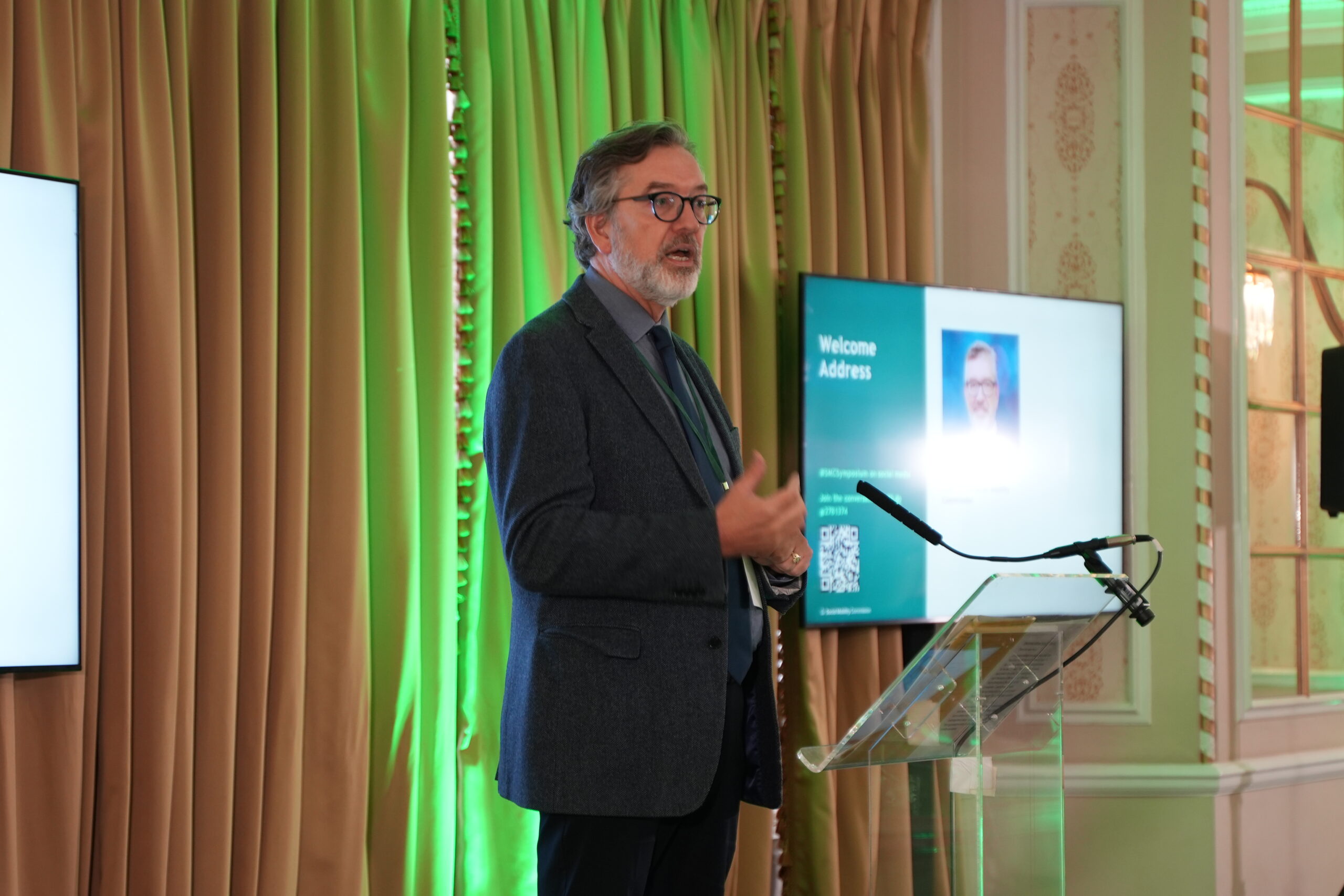SMC breaks new ground with launch of think piece series
The SMC has published three leading-edge think pieces, written by experts in their fields, to explore a range of economy-focused perspectives on social mobility.
For a long time, much of the traditional social mobility debate has been concerned with higher education and its importance to later success. The conventional approach aims to improve upward mobility by moving individuals from a lower socio-economic background into professional occupations, often via prestigious universities. While there is merit in that approach, it is only one form of social mobility and applies to small numbers of people. Our argument is that the most pressing social and economic problems of today require us to think differently – about a wider variety of opportunities, for a wider variety of people, in a wider variety of places. Data can often be interpreted in a binary way, which hides the potential for other causes and drivers of social mobility to be brought to light. So we need to expand our approach to give much greater consideration to economic factors, alongside traditional educational considerations.
Drawing on the latest research, the SMC’s think piece series explores new ideas about social mobility, which have not previously featured in policy debates. The aim of this series is not to provide ready-made policy solutions, but to start setting out a framework that will help to address contemporary social mobility challenges more effectively.
The three think pieces (links below) explore three overlapping themes which are pertinent to the social mobility challenges which our country currently faces.
- Innovation and social mobility: two sides of the same coin
- Spatial agglomeration, productivity and inequality
- Occupational regulation and social mobility in the UK
How can we bolster innovation to support social mobility?
The relationship between innovation and social mobility is seldom explored in current narratives. Our think piece, Innovation and social mobility: two sides of the same coin, by Prof. Philippe Aghion; Prof. Richard Blundell and Dr Xavier Jaravel, discusses how competition policy, education policy and labour market policy can all work to foster greater innovation and social mobility.
The authors place social mobility in the context of innovation disrupting established markets. This has implications for elite groups, who may seek to protect themselves from competition, but are (if the market works well) held to account by the challenge from new market entrants. They argue that policy should, therefore, focus on creating the conditions for innovation through this “creative destruction”, and that this is an inherently socially mobile process.
The article also suggests how innovative economies bring benefits across the full range of socio-economic backgrounds, and discusses themes and issues which undermine the process and prevent it from working well. This includes presenting evidence that parental income and/or parental education can create barriers to entry, which prevent individuals from becoming innovators and inventors. They refer to this as the “lost Einstein” or “lost Marie Curie” phenomenon, where highly talented children who could have become innovators fail to innovate because of obstacles in their way. However, in the SMC’s view, it is important not to interpret “highly talented” in a binary way, in other words, as simply those with high academic achievement. We also need to consider that there is a much wider group of children with the skills and potential to become entrepreneurs and innovators, but who miss out on the opportunity to explore these skills because they come from different socio-economic backgrounds.
This think piece highlights the importance of competition policy as a tool for improving social mobility and also asserts that education should have a stronger focus on innovation, invention and enterprise. This is very pertinent at a time when the country faces the dual challenge of fostering economic growth, with the fundamental problem being low productivity, while also aiming to close regional disparities and improve opportunities for all. This narrative will form a key part of the SMC’s approach to social mobility, which places the economy and the generation of opportunity in a much more central role for the first time.
How can we grow opportunity across the UK?
How economic opportunity and social mobility is distributed across the country is a theme which the SMC has focussed on very strongly in recent years. Our think piece, Spatial agglomeration, productivity and inequality, by Dr Monica Costa Dias, University of Bristol; and Luke Heath Milsom and Robert Joyce from the Institute for Fiscal Studies (IFS), provides a starting point to help shape the debate on how we can grow the economy whilst ensuring opportunities are spread across the whole of the UK.
Regional disparities exist in every country, because economic activity tends to be concentrated in urban centres. There are huge benefits to this process (which economists refer to as agglomeration), because it often generates growth, innovation and productivity. The question for our country is whether agglomeration has become too extreme – particularly in London.
There is a significant amount of inequality in life outcomes between London and the rest of the UK. But there is also a lot of inequality within London. These inequalities span a range of areas – from health, to wealth, to education and occupational choice. It is, however, the geographical differences between places – and particularly between London and its surrounding areas vs other parts of the UK, which underpins a great deal of unequal opportunity today.
This think piece pinpoints a wide range of policy levers – including tax, transport, business incentives, housing, as well education and employment policy – which may have a role to play in addressing regional inequalities and improving social mobility geographically.
What is the impact of occupational regulation on social mobility?
Our third think piece – Occupational regulation and social mobility in the UK, by Dr Maria Koumenta, an expert in labour market analysis, opens up another new perspective on improving opportunity.
It is widely recognised that a key factor in improving social mobility is the expansion of higher quality, better paid employment. This is usually associated with the professions, although this is changing as new technical skills are increasingly necessary for the economy to grow. A great deal of social mobility policy is focussed on improving the pathways into the professions. Very rarely does it ask whether those pathways are too narrow, limited or over-protected. Dr Koumenta sets out some of the issues arising from occupational regulation in the United Kingdom, and shows how this can constrain opportunity and social mobility, suggesting some potential policy solutions to consider.
Together, these think pieces form an important step in exploring often overlooked topics in social mobility policy debates. By gaining a better understanding of a range of unexplored factors that impact social mobility, we hope to broaden attitudes and approaches, so that opportunities can be extended to the widest variety of people in the widest variety of places.
Related content

Who shapes the future? Women, Tech and AI – New Podcast Episode
Right now only 1 in 4 tech workers are women and just 9% are from a low socio-economic background. What does it mean when the sector shaping the future doesn’t… read more
Topics

New Social Mobility Commission report calls for more powers for local government to unlock greater opportunity for millions
The Social Mobility Commission has published a new report which calls for devolved authorities to be given greater powers and resources to help tackle the UK’s social mobility problem. The report… read more
Topics

Social Mobility Commission Symposium: Welcome address from Chair Alun Francis
Read a transcript of the welcome address delivered by Alun Francis, Chair of the Social Mobility Commission, at Manchester Hall on 15 September.